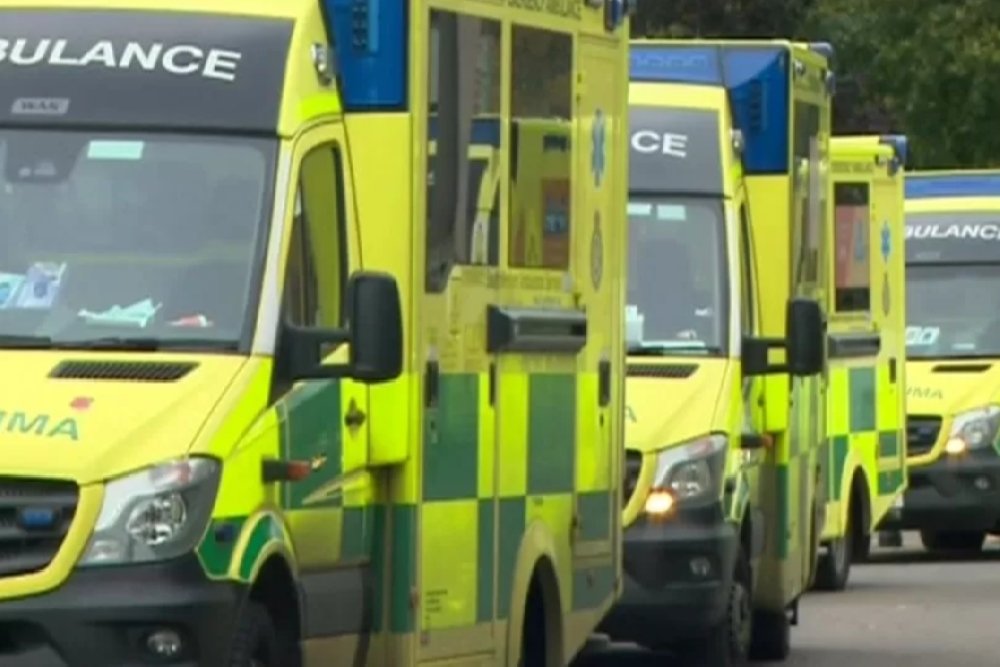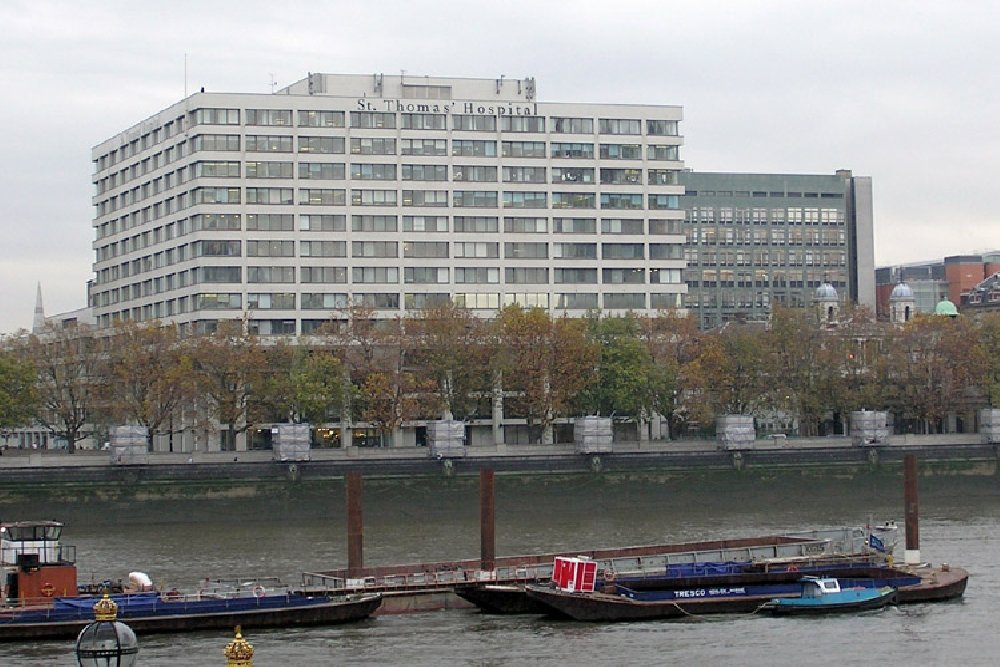Today I read the pathetic story of a 92 year old lady who was tormented by the NHS when she sustained a broken hip. She had to wait 4 hours for the ambulance to arrive, followed by 20 hours wait in the ambulance outside the A&E of Royal Cornwall Hospital, Truro because there was no bed. This is a deplorable way of treating an elderly patient with agonising pain in a developed country. I thought I should write about the working of the NHS and examine whether the NHS is fit for purpose.
The NHS is like an ocean whose structure can be hard to get your head around. The NHS was launched in 1948 to provide free healthcare at the point of use. NHS England, Scotland and Wales,with a total workforce of 1.5 million, the biggest employer in Europe and the world’s largest employer of highly skilled professionals. NHS England is controlled by the Department of Health and Social Care (DHSC) which takes political responsibility of the service. Since healthcare is indispensable for everyone, successive governments turned it into a political football. Increase in population, increased longevity, modern trends in the management of disease and inflation required its budget to expand exponentially.
The government fund the NHS through Taxes, National Insurance and directly by the patients, through prescription charges. In 2020/21 department of Health and Social Care spent £192 billion, which is used to fund a wide range of health and social care services including GP services, ambulance, mental health, community and hospital services, which are commissioned by the NHS and public health. Healthcare spending in England is roughly equivalent to £3000 per person, per year. It costs £400 per day to keep a patient in hospital, while to keep a prisoner in prison the rate is £240 per day! Considering the costs of drugs, investigations, highly skilled professionals in the hospital set up, the daily cost is not too much.
There are seven NHS regions, they are 1) East of England 2) London 3) Midlands 4) North East and Yorkshire 5)North West 6) South East and 7) South West. Under the regions there are over 150 trusts which run the hospitals. In 2013, Cameron’s Coalition government took away the power of the general practitioners and transferred it to Clinical Commission Group (CCG), who commission the delivery of healthcare. The services of CCG include hospital care, rehabilitation care, urgent emergency care, community health services, mental health services, and learning disability services.
UK spends 2% of NHS budget on administration and 3% of staff are in administration. The main employees include doctors, dentists, midwives and nurses, paramedics and ambulance drivers, pharmacists, optometrists, occupational therapists, physiotherapists and radiographers. The standard hours of all full-time NHS staff are 37.5 per week, excluding meal breaks . Traditionally, work in hospitals has involved dividing the 24-hour period into three work shifts an early (for example, 7.00-15.00), late (13.00-21.00) and night (21.00-7.00) shift with nurses generally working five such shifts a week.
National Health Service (NHS), largely operate a hierarchical, pyramidal form of leadership. Hierarchical leadership can be defined as a “clearly delineated chain of command from the lowest to the highest levels within an organisation”.The number of managers have increased recently.The top of the pyramid ,Amanda Pritchard , the chief executive officer of the NHS England takes a salary of over £260000.00 for running this poor show.
NHS
England head quarters is in Leeds, and there are 6500 employees working
there. Health secretary is the head of the NHS, and in addition to the
chief executive officer there are board of directors. The NHS head
quarters oversees the budget, planning, delivery and day-to-day
operation of the commissioning side of the National Health Service in
England as set out in the Health and Social Care Act 2012. Other NHS
administrative staff like secretaries, ward clerks, receptionists
provide business support to clinical and non-clinical staff.
I
mentioned, the NHS is politically controlled as such the decisions are
also taken accordingly. The NHS awarded £20 billion to an IT company,
which later turned out that their system was not functional and the
media reported it to be a waste of money. In the Covid-19 period the NHS
awarded a contract for PPE and masks to a company associated with the
Tory party without inviting tendering process.The enquiry report is
expected to criticise the government for not going through due
process for tendering. These out of the way awarding contracts helped
to line the pockets of the politicians and NHS authorities.
The
NHS is severely criticised for unacceptable waiting lists for GP
appointments, elective operations, investigations for diagnosis, cancer
treatment and waiting time for accident and emergency. Today the data
shows 6.7 million patients are waiting for hospital treatment. A patient
with stroke, heart condition or severe infection needs to wait at an
average 59 minutes to get an ambulance.on category 2 emergencies.
Recently the NHS has been incriminated in several breaches of healthcare
delivery.The most common breaches included failure to decontaminate
reusable equipment, poor management of patients\' records, lack of
compliance with guidelines on diagnosis and treatment, and faults in
staff training procedures.
I
recently watched a programme ‘the way forward for the NHS’ in which
the panel asks for tax incentives for private healthcare. In my view the
NHS is not fit for purpose, as its services are deteriorating fast. It
seems the NHS is designed for the interests of high salary and perks
consuming senior staff and for some employees. Either the NHS should have
a root and branch change or it should be abolished, retaining a
skeleton service for the vulnerable patients.
I
have a vision of an alternative market oriented healthcare system
instead of the NHS. Every British citizen should have a healthcare
credit of £15000 for 5 years. This should be arranged by the DHSC at
£3000 per year as per the current NHS spent. For every private GP
visit, investigations and drugs, the cost should be paid by the DHSC
through coded voucher of £3000 per year. These vouchers should not
have a cash value, should not be transferable to another and should
expire after five years. People can go to any private healthcare provider or
doctor of their choice, receive the healthcare and can cash the
voucher.
Readers
might be wondering how it will be funded free for major operations. For
the ease of comparison, let me give the cost of hip replacement, a
commonly done major operation.The average quote for hip replacement
privately in the UK is about £12,500, while it is only £3000 to 3500 in
India. When a baby is born or someone becomes British citizen, £15000 credit is applied for 5 years. The patient who requires hip replacement should
be given a voucher for the cost of the operation within £15000 by the
DHSC. If the treatment costs exceeds £15000, either the patient should
seek help from the NHS skeletal service or fund the shortfall privately.
This is also applicable to care home expenses.
Now
the NHS is to launch a campaign urging the public to avoid A&E to
protect the healthcare service.Through inadequate funding, NHS are
offering substandard inadequate healthcare. While downsizing the
service, the government is not cutting high perk administration staff
remuneration.The Tory leadership contestant, Liz Truss agrees that
the NHS is in a mess and plans to bring back retired doctors to the
service. There are plans to introduce GP visit charge. However since
many of the Tory politicians have a stake in the private healthcare, it
is unlikely the service is going to be revamped as some Tories want to
build a parallel private healthcare system. Those with a bit of cash are
increasingly likely to buy their way out of an unfit NHS.
In
the above discussion, I put forward suggestions to get rid of the
exorbitant administrative expenses and delays through bureaucracy. The
NHS is a dinosaur which has not evolved enough for patients to get tailor made treatment any where in the world.
Everyday patients frustratingly hang on to the phone, listening to automated
messages and unconventional phone and video consultation. British people deserve to get healthcare in a proper manner, when they need it.


Comment Form